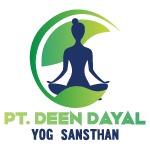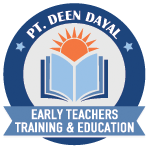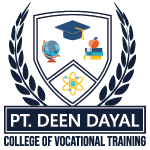Education Modes
Regular Mode
Students who would like to attend classes in regular mode and attend practical classes can join the vocational programs in regular mode. The classes will be conducted systematically by expert faculties who have several years of experience. 75% attendance is required to attend exams.
Eligibility
Students who have passed X Standard or XII Standard as may be required will be strictly followed for Regular admissions. Students who have not passed X Standard or XII Standard as the condition may be will not be considered for admission to regular vocational programs.
Examination Procedure
The Examination will be conducted systematically in written format and invigilators will inspect the Examination hall. Practical Examination will be conducted as per council norms. An assignment submission and viva voce examination will be conducted to test the subject knowledge of the students through Qualified Experts. For assignment and viva voce, separate marks will be allotted. At the end of the program, a Project Work needs to be submitted illustrating the scope of his/ her subject. Again marks will be allotted for Project Work.
Students who do not appear for all examinations will be marked absent. Results will be announced in 30-45 days from the date of completion of examination Certificates will be awarded based on whether the student has passed the exam or not. Regular Certificate will be awarded for the students who pass the exams in regular mode.
Distance Learning Mode
Distance Education, or distance learning, is a field of education that focuses on the pedagogy and andragogy, technology, and instructional systems design that aims to deliver education to students who are not physically "on site".
Distance Education “is a process to create and provide access to learning when the source of information and the learners are separated by time and distance, or both.” In other words, distance learning is the process of creating an educational experience of equal qualitative value for the learner to best suit their needs outside the classroom.
Distance education courses that require a physical on-site presence for any reason including the taking of examinations is considered to be a hybR&D or blended course of study.
This emerging technology is becoming widely used in universities and institutions around the globe. With the recent trend of technological advance, distance learning is becoming more recognized for its potential in providing individualized attention and communication with students internationally.
Examination Procedure
All the Vocational Education courses are One Year Certificate Courses. Exams will be conducted in non-semester mode in the prescribed format. The Examination will be conducted in the written format and once the student passes the exam the certificate will be issued mentioning that the student has passed through Distance Mode.
E-learning
“E-learning is training provided via a computer or other digital device, allowing technology to facilitate learning anytime, anywhere.”
Education via the Internet, network, or standalone computer. e-learning is essentially the network-enabled transfer of skills and knowledge. e-learning refers to using electronic applications and processes to learn. e-learning applications and processes include Web-based learning, computer-based learning, virtual classrooms, and digital collaboration. Content is delivered via the Internet, intranet/extranet, audio or videotape, satellite TV, and CD-ROM.
E-learning was first called "Internet-Based training" then "Web-Based Training" Today you will still find these terms being used, along with variations of e-learning such as e-learning, Elearning, and eLearning.





